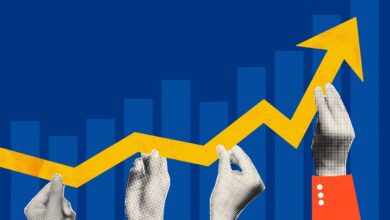Will Tariffs Cripple Beverage Innovation—Or Can AI Level The Playing Field?

📝 usncan Note: Will Tariffs Cripple Beverage Innovation—Or Can AI Level The Playing Field?
Disclaimer: This content has been prepared based on currently trending topics to increase your awareness.
The global turmoil around tariffs is taking a toll and an often-overlooked area of innovation – food and beverage. While traditional innovation sectors, like tech and pharma, have been exempted from tariffs on products from countries like India and Brazil, the F&B sector has some of the highest rates around. These tariffs threaten to kneecap an emerging sector of innovation around the world, that is, for the first time, using traditional startup strategies and pathways to innovate, scale and grow.
Over the last 40 years, alcoholic beverages have actually been an unheralded area of innovation. A drive towards better quality foods and beverages, healthier ingredients and localized tastes, alongside a rising middle class seeking out better alcohol beverages has led to new brands around the world, better tasting beverages, and a new class of investors looking at alcoholic beverages as a growth industry.
American craft beer, for example, has grown over the last 30 years to take nearly 15% of US beer sales by volume. Initially led by the success of known brands such as Sam Adams and Anchor Steam, craft beers now thrive across America, despite their higher price and limited availability from city to city. Overall, investors poured over $4 billion into alcoholic beverage startups in 2024.
In India, brands like Sola Wines, which launched in 1998, and Indri Whiskey, which launched in 2012, but didn’t begin selling internationally until 2021 are redefining the taste buds of Indians with high quality, locally produced alcoholic beverages as never before. Today, Indri is the world’s fastest-growing Indian single malt for the second year, according to the IWSR, with over 2 million bottles sold in 2024 – with many sold internationally.
Bottles of Liquor: Green Chartreuse V.E.P.; Tullamore Dew 10 years old reserve; Domaine De Canton Ginger Liqueur; The Glenlivet XXV; Old Forester Repeal Bourbon; Suntory Yamazaki 18-Year old Single Malt. (Photo by Romulo Yanes/Condé Nast via Getty Images)
Conde Nast via Getty Images
But that’s where the reality of the recent tariffs by the Trump Administration come in. Indian alcohol, wine and spirit exporters could face tariffs as high as 122%, according to the US India Business Council. Some Indian brands, such as Radico Khaitan and Piccadilly Agro, the parent of Indri Whiskey, have suggested that they may stop exporting to the United States in the short term and focus on other markets. At the same time, the industry is embracing artificial intelligence (AI) and data analytics to manage tariff risks, optimize logistics costs, and ensure pricing compliance across complex regulatory environments.
“Tariffs are intended to protect U.S. domestic industries, but in the alcohol beverage sector—and in many other industries—they can create complex challenges that ripple across the entire supply chain.”
Rensi Chen is a Senior Revenue Management Analyst at Republic National Distributing Company (RNDC), one of the largest alcohol beverage wholesalers in the United States. Chen has created an AI-powered pricing compliance platform for the alcohol beverage industry. This solution leverages large language models, regulatory knowledge graphs, and multi-modal document parsing to detect illegal pricing practices, provide vetted regulatory interpretations, and recommend corrective actions to wholesalers designed to help suppliers, wholesalers, and retailers meet federal and state pricing laws while maintaining market competitiveness.
Using insights gleaned in his recently published academic papers on artificial intelligence, Rensi and his team also leverage AI-powered analytics to validate revenue and cost structures—reviewing pricing, freight charges, holding costs, and downstream market pricing—to identify incorrect or disproportionate tariff applications and potential compliance risks. This safeguards regulatory adherence while ensuring fair market competition between domestic and imported products. By integrating tariff data with sales performance, market trends, and regulatory frameworks, Rensi can pinpoint inefficiencies, detect policy misalignments, and recommend corrective actions—ranging from renegotiating supplier terms to adjusting pricing strategies.
“Tariff implementation carries the same risks we encounter in cost and pricing compliance across U.S. markets—fragmented data, inconsistent validation, and regulatory complexity. While advanced AI tools like Large Language Models are already deeply embedded in leading technology industries, they remain underutilized in traditional sectors like food, beverage, and CPG. By bringing these tools into tariff and pricing validation, we can close critical compliance gaps, protect fair competition, and foster sustainable industry growth”, according to Chen.
Chen has participated in both the supplier and wholesale sides of the alcoholic beverage three-tier system during his career and has witnessed the data discrepancy pain points under unstable policy change and nuanced market data in both segments.
The investment in AI tools to improve regulatory compliance and supply chain variations will continue regardless of the state of geopolitics. But two additional factors loom large in the short term. First, the US Supreme Court must determine if the White House has the ability to set tariff rates, which has historically been the task of the US Congress. Secondly, Trump can change his mind. Hopefully, these decisions may come to late for some brands.




